Marine & Natural History Photography BA(Hons)
Tell powerful conservation stories with your camera.
Course overview
Join a passionate group of environmentalists who believe that images can change the world. On this Marine & Natural History Photography course, you'll become a skilled communicator, exploring important and powerful ecological and conservation issues and bring them to life with your camera.
Combining the rigour of research with the creativity of storytelling, you’ll expose some of the biggest challenges that face people and planet, while celebrating the beauty of nature.
Based in some of the most outstanding landscapes in the UK, you’ll be taught by award-winning and industry-connected photographers, expert filmmakers, explorers and scientists, gaining career-boosting insights and opportunities during your studies.
While developing technical proficiency, we also encourage students to think critically, to ask questions and to challenge patterns of thought and behaviour to make a difference.
Why study this course at Falmouth?
- Cornwall’s diverse marine and land environments will be your studio – you can get from campus to coast or moorland in a matter of minutes
- Rivalling professional studios, our photography facilities and stores are stacked with high-spec digital and analogue equipment and are some of the best of any UK university
- You'll gain insider insights and professional connections through masterclasses, guest speakers, field trips and live briefs
- We encourage adventure – former students have travelled to the Ecuadorian rainforest, Indonesian coral reefs, and Norwegian glaciers on self-funded trips to produce their Major Projects
- You’ll become part of our close-knit, globe-trotting alumni that have picked up huge commissions (BBC, Netflix) and awards for their work
- As part of our supportive creative community, you’ll start building your professional network from day one of your degree
Lead images by James Welch, Rita Hencke, Tom Critchley and Chloe Russell.
Course details
On this course, you'll develop a passionate understanding of earth’s habitats and fragile ecosystems while mastering the technical film and photographic skills to create images that inspire, move and educate audiences.
As well as developing an industry-ready portfolio of original work, you’ll graduate with the professional skills to turn your creative practice into a rewarding career.
Course study options & full details
You can gain your Marine & Natural History Photography BA(Hons) degree in three years or choose to add an Integrated Foundation Year and/or professional placement year. Discover the full course details for each study option, below.
What our students do
Hear from students on the course here, and explore a full showcase of recent work below.
You'll practice photographic skills alongside research and critical thinking. During this year, you'll explore biodiversity and habitat, as well as the marine environment, and will participate in a number of local field trips to land and marine locations.
Modules
Developing Practice
In your first module, you'll be introduced to basic photography skills and camera techniques.
Research and Critical Thinking
Establishing research and critical thinking skills, you’ll learn how to generate ideas, understand the impact of photography and improve your writing.
Biodiversity and Habitat
In this module, you’ll study and photograph the intricate web of life in a local habitat.
Exploring Practice: Land or Underwater
For this module there are two options. You can explore further photographic skills on land or practice them in an underwater environment.
To qualify for the underwater photography option, you must have achieved the PADI Rescue diver qualification (or equivalent ie. BSAC Sport diver) by the start of the academic year.
Communicating Nature
Through lectures and live examples, you’ll learn to communicate scientific ideas through text and photographic sequence.
The Marine Environment
You will explore and photograph the seashore right on our doorstep and learn about important ocean issues.
Alongside studying moving image and still photography, you'll develop your research and critical thinking skills, explore global conservation, and get ready for your own research project. You will also get the opportunity to undertake a short period of work experience.
Modules
Extending Practice: Land or Underwater
Choosing between the Land or Underwater option for this module, you’ll practice advanced techniques through the development of an independent project.
To choose the Underwater option, you must have completed the Exploring Practice: Underwater module in your first year.
Introduction to Filmmaking
Through the process of producing a collaborative short film, you’ll learn how nature and environmental films are made.
Conservation Stories
Examine conservation issues and learn how visual media can have a huge impact.
Photography of the Natural World
In this module, you’ll learn how photographers use images to make a positive difference and produce your own portfolio.
Independent Filmmaking Practice
Working independently, you’ll create and produce your own short film about people and planet.
Work Experience
You will spend a short period of time undertaking work experience in a relevant professional context.
You will be responsible for finding and securing your placement, with support from course lecturers.
You can choose to take an optional professional placement after your second year on a three-year programme, or after your third year if you’re studying for a degree with an Integrated Foundation Year.
You’ll be responsible for finding your own placement, with support from the Employability team.
Choosing this option will enhance your industry experience and skills while studying.
How you’ll study during your professional placement
You’ll spend time working in a professional context, as part of a business or organisation. This can be in one role, or up to three, and must be for a minimum of 24 weeks.
You’ll develop in-demand workplace skills, deepen your insight into industry and grow your network of contacts, all of which could help you get ahead in your career after graduation.
Throughout this year, you’ll develop a portfolio of work that includes critical self-reflection on what has been learned from the experience. You’ll be required to evidence your experiences, the skills you’ve learned and your professional growth.
In the final year of the course, you’ll create your Major Project using still or moving images, or a combination of both. You will support this with an extensive piece of writing about the subject of your project, along with a career plan to help you move into your chosen area of the industry.
Modules
Project Development
You’ll research and begin to develop a major project using still or moving image.
Culture and the Environment
You’ll research and write an extended essay on the subject of your major project.
Major Project
This module marks the culmination of your studies. You’ll complete your Major Project and produce a professional portfolio ready to take into industry.
Professional and Entrepreneurial Practice
With support from lecturers, you’ll develop a clear plan showing how you intend to move into your chosen area of the industry after graduating.
Why study an Integrated Foundation Year route?
If you’re taking on a new subject that you haven’t studied in depth before, have been out of education for a while or have a non-standard educational background then an Integrated Foundation Year degree may be the right choice for you. It is a four-year degree with an Integrated Foundation Year to start, which allows you to explore the primary elements of your subject before progressing on to the remaining three years of the BA(Hons) degree.
What you'll study in your Foundation year
If you choose this pathway, you'll study five core modules in your Foundation year. These are all designed to help you explore the foundational elements of your subject. You'll gain relevant technical skills, learn to experiment and take risks, develop an understanding of professional practice, have opportunities to work across disciplines and collaborate with other students on live project briefs.
Modules
Explore
You'll begin your foundation year by working collaboratively with others to explore themes of the future. You'll take risks, experiment through play and be supported to break through barriers.
Technique
You'll take subject-specific workshops and develop essential technical and practical skills in your area of study. You'll also enhance your analytical and organisational abilities.
Apply
You'll work with your peer group to think beyond discipline by addressing a societal or global issue. You'll then showcase your work to your peers and deliver and accompanying evaluation of your process.
Industry
You'll enhance your creative and practical skills in your subject specialism by responding to typical industry briefs, underpinned by focused research and experiments. You'll also gain industry insights through guest lectures and workshops.
Launch
You'll develop your unique identity in your specialism through the production of a self-initiated body of work. Your final project will be the bridge to your next year, fully supported by evaluative reviews and critical analysis of the work you have created.
After the Foundation year, you progress into Year One of the full three-year degree, equipped with a deeper knowledge of your subject, a clear understanding of your strengths, and develop a practical and technical skillset and the confidence to excel in your chosen subject.
If you apply for and enrol onto a degree with an Integrated Foundation Year, you’ll have the option to switch onto a five-year version including a placement year. That means you’ll complete the first three years of your course before completing a placement in industry in your fourth year and returning to Falmouth for the fifth year of your programme.
The Integrated Foundation Year pathway for this course is new for entry year 2023 and subject to validation.
As part of our process of continuous improvement, we routinely review course content to ensure that all our students benefit from a high-quality and rewarding academic experience. As such, there may be some changes made to your course which are not immediately reflected in the content displayed on our website. Any students affected will be informed of any changes made directly.
How you'll learn & be assessed
You’ll learn through field trips, photographic and scientific excursions, technical workshops, lectures, seminar, and tutorials.
The Marine and Natural History Photography course includes an optional underwater programme. In addition to diving in Cornish waters, those undertake this option have the opportunity to practice their skills in the Red Sea.
In the final year of the course students pursue an independent major project. This can use either stills or moving image, or a combination of both, to tell stories from anywhere on the planet.
Students have previously created projects that have documented climate change in Norwegian glaciers, conducted research in the Ecuadorian rainforest, filmed conservation work in the Amazon, and told the story of the indigenous fishing community of the Bajo.
At Falmouth, we use a 'digitally enhanced learning & teaching' approach. Your experience will always be predominantly in-person, including seminars, tutorials and studio teaching, with some, more targeted elements, being online either live (synchronous) or pre-recorded (asynchronous). You can read more here.
100% of your assessment will be coursework.
Assessment methods
- Foundation year assessments are 100% coursework based
- Practice-based modules will be assessed on the presentation of portfolios, including preparatory work.
- Critical studies modules will be assessed on written assignments or presentations.
- In the final year, you’ll be assessed on your major independent project which is supported by an extended piece of contextual writing and a professional portfolio.
- Feedback is given throughout the modules to help you improve your work.

"For anyone who wants to contribute to conservation efforts by raising awareness and driving change through media, this course is a perfect fit."
Jasmine Corbett, graduate

"If you're interested in exploring ways to make a difference in the protection of our natural world, then look further into this course."
Jacob Guy, graduate

Image by: Jack Mifflin
Facilities
- Multiple studios, darkrooms and print suites
- Photography store containing a wide range of professional equipment free to loan.
- Macro and long lenses, macro flash, infrared triggers and time-lapse and underwater cameras
- Specialist underwater cameras for students qualified to dive
- Digital suite with Adobe software
- Photo-microscopy laboratory
- Digital and traditional processing facilities
- Walled garden with fully equipped hide for nature study, photography and filming
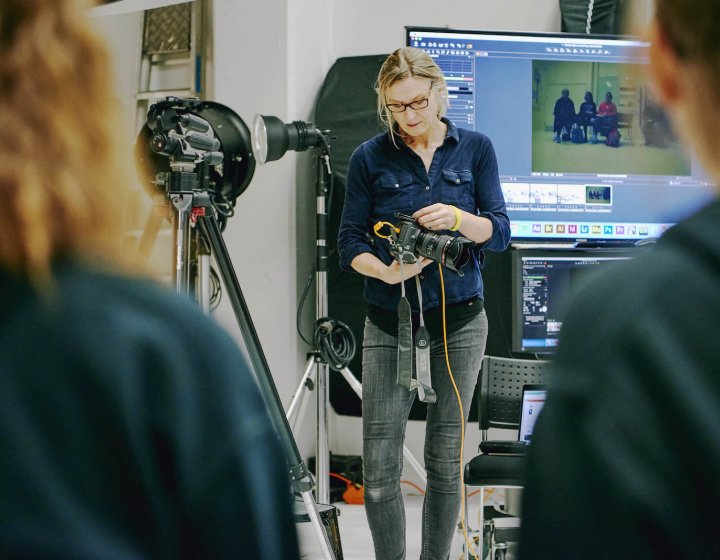
Photography Facilities
Housing dark rooms, post-production suites, full professional studios and gallery, our Institute of ...
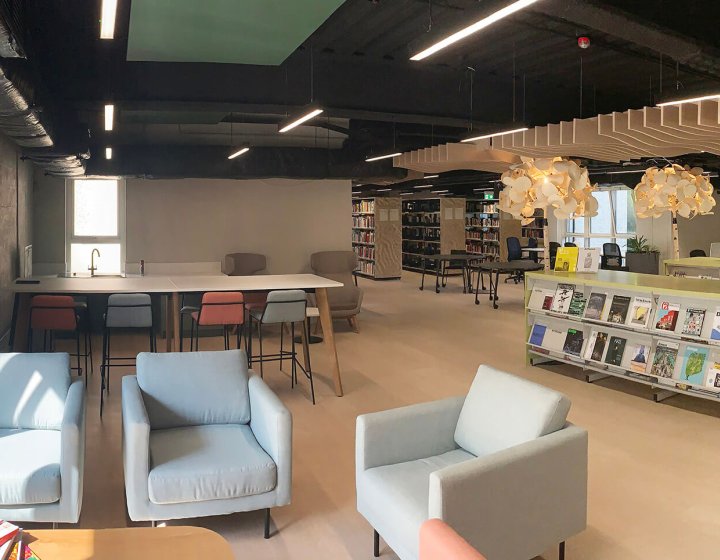
Library Facilities
Offering extensive collections, our two libraries provide a wealth of digital resources, magazines, ...

Sports Centre
Our Sports Centre, on Penryn Campus, includes a spacious gym with up to 90 of the latest, new statio...

Image by: Nick Jarvis

Image by: Arnie Monteith
Staff
You’ll be guided and supported by practising photographers, scientists and explorers. Their careers span from leading expeditions to working and exhibiting photographs internationally.
Some members of staff only teach on specific modules, and your course might not feature every staff member who teaches on the course.
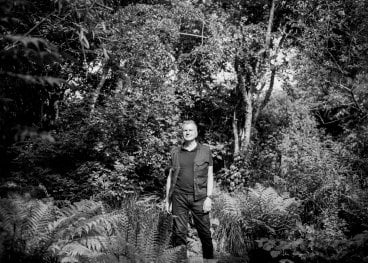
Dr Daro Montag
Associate Professor of Art & Environment
Daro Montag's art practice has, for over thirty years, been involved with environmental and ecologic...

Dr Huw Lewis-Jones
Associate Professor of Environment and Culture
Dr Huw Lewis-Jones is an environmental historian and expedition leader. Huw is a storyteller and ...
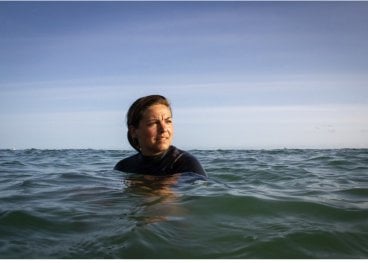
Gina Goodman
Lecturer, Marine & Natural History Photography BA(Hons)
I am a multi award-winning underwater photographer, diving instructor, and enthusiastic lecturer wit...

Jane Morgan
Dive Safety Officer and Dive Technician
Jane's career began as an IT trainer at News International in London. However, after discovering a p...
Justin Quinnell
Associate Lecturer Photography
Bristolian pinhole photographer and camera obscura creator who dabbles in other stuff. Been tea...

Helen Perkins
Dive Safety Officer
I graduated from Plymouth College of Art and Design in 2000 where I specialised in fine art landscap...
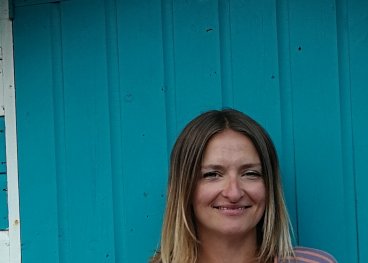
Dr Joanna Henley
Senior Lecturer
I am a marine educator with a PhD in the visual communication of marine science. I joined the M...

Dr Tim Cockerill
Senior Lecturer
Dr Tim Cockerill is a zoologist, broadcaster and photographer. Tim specialises in documenting a...
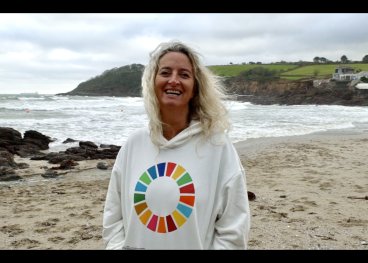
Anna Roberts
Senior Lecturer, Marine & Natural History Photography
Director/Producer with a breadth of experience in natural history and presenter-led formats, working...
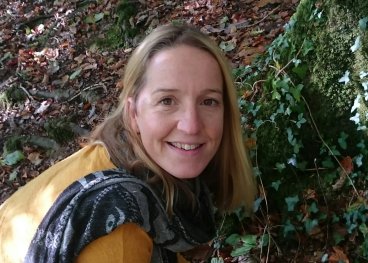
Claire Braithwaite
Lecturer BA (Hons) Marine and Natural History Photography
Claire Braithwaite is an artist and photography educator with over 15 years experience teaching acro...
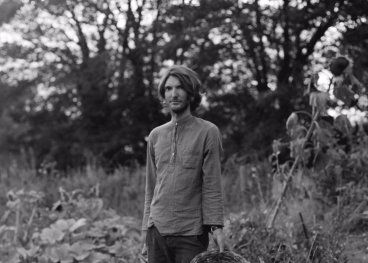
William Arnold
Lecturer, Marine & Natural History Photography BA(Hons)
William Arnold currently teaches on BA Marine & Natural History Photography. He is an experim...
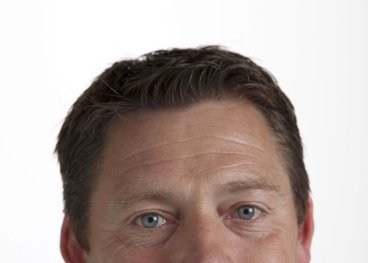
Mark Wallwork
Technician, The Institute of Photography
I studied a BTEC national diploma photography at Wigan and Leigh college in 2002 before enrolli...

Kate Bell
Photography Technician
I graduated from Manchester Metropolitan in 2007 with a First Degree Hons in BA Photography. During ...
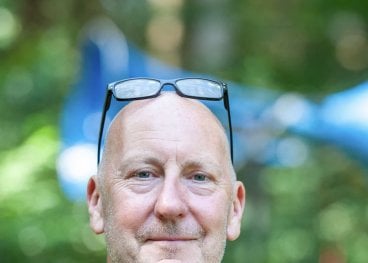
Dr Andy Webster
Associate Lecturer, Marine & Natural History Photography BA(Hons)
Andy Webster (b. 1964, Mansfield, UK) lives and works in Botallack, UK. Andy received a PhD in Ar...
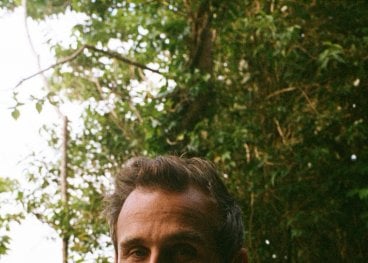
Guy Martin
Lecturer
Guy Martin is a documentary photographer & lecturer. He has been a member of Panos Pictures sinc...

Got a question about this course?
If you want to know more about the course structure, our application requirements or what our graduates have gone on to achieve, our friendly course team is here to help.
Chat to OliThis course could be for you if...
- You have a passion for photography and the natural world.
- You want to build on your technical knowledge and skills.
- You've got good visual awareness.
- You want to research, write and analyse photographic subjects.
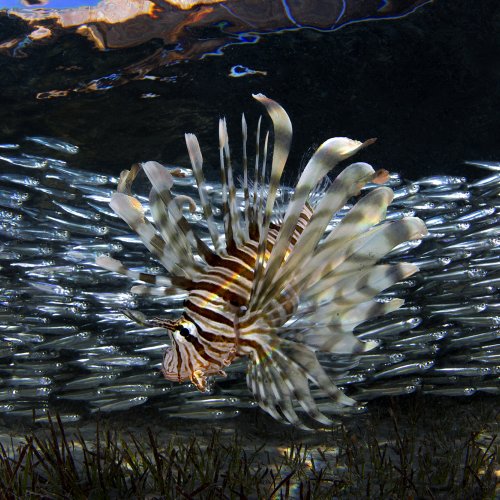
'The Long Game' by Gina Goodman
'As a lecturer, I think the greatest win is to share these kinds of platforms with those you have watched and help guide into the industry – you can't ask for more really!'
- Lecturer Gina Goodman on being shortlisted for the British Photography Awards 2023
Read Gina's storyStories from our community
Explore student projects, graduate successes, staff news and industry insights
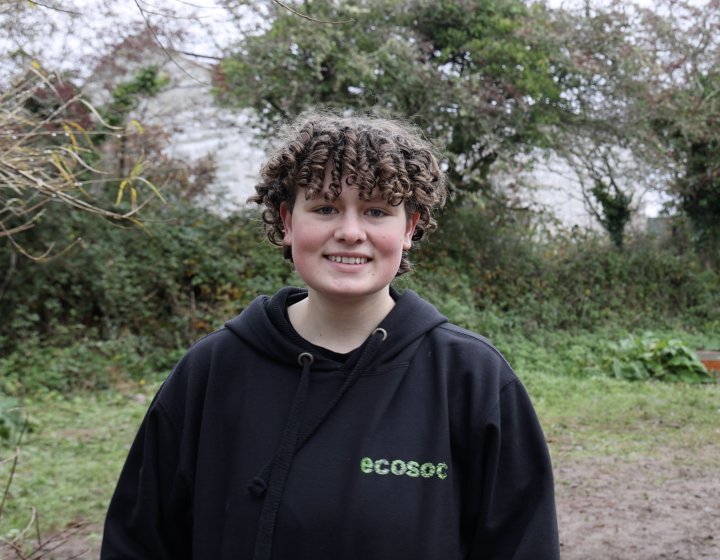
Why I chose to study Marine & Natural History Photography at Falmouth University
14 December 2023
Falmouth is the perfect location to study Marine and Natural History Photography as it is surrounded...
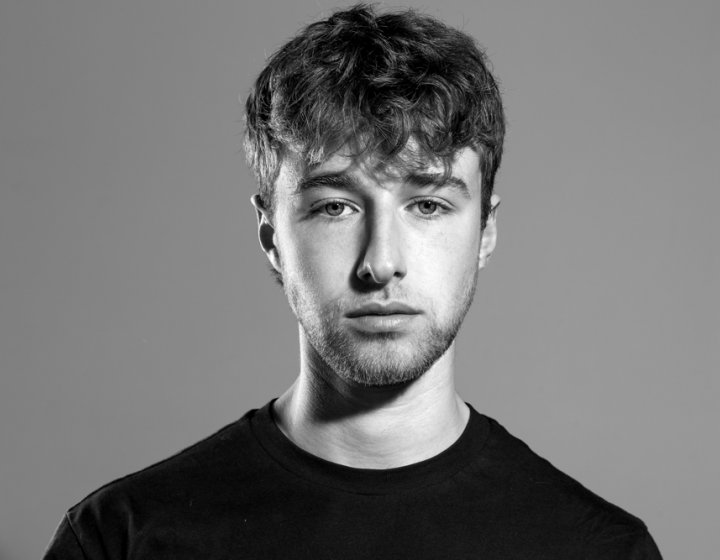
Photography student Jacob Watson-Howland wins national photography award
25 March 2025
With over 13,000 entries submitted, Marine & Natural History Photography BA(Hons) student Jacob J Wa...
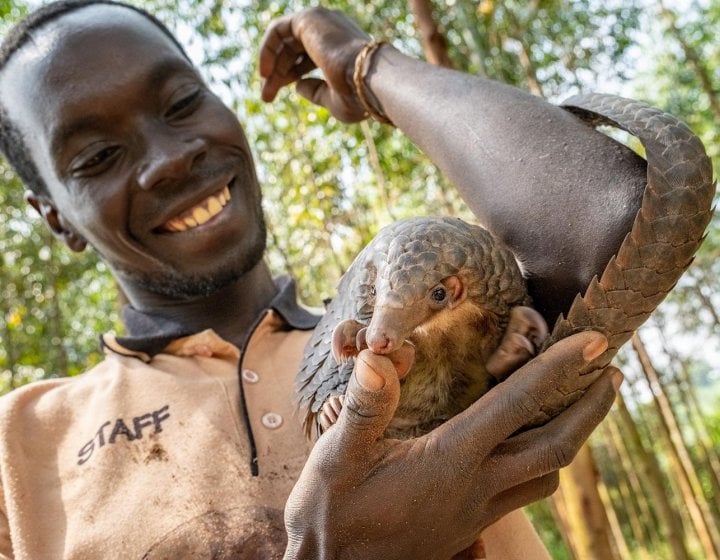
From the film, 'The Pangolin Man' by Ellie Stones
How conservation photography inspires change
03 March 2025
Today’s conservation photographers must be strong communicators as well as skilled image-makers.

Falmouth graduate lands Wildlife Photographer of the Year cover
12 November 2024
We caught up with William Fortescue to discuss his work and ask his advice for aspiring wildlife pho...
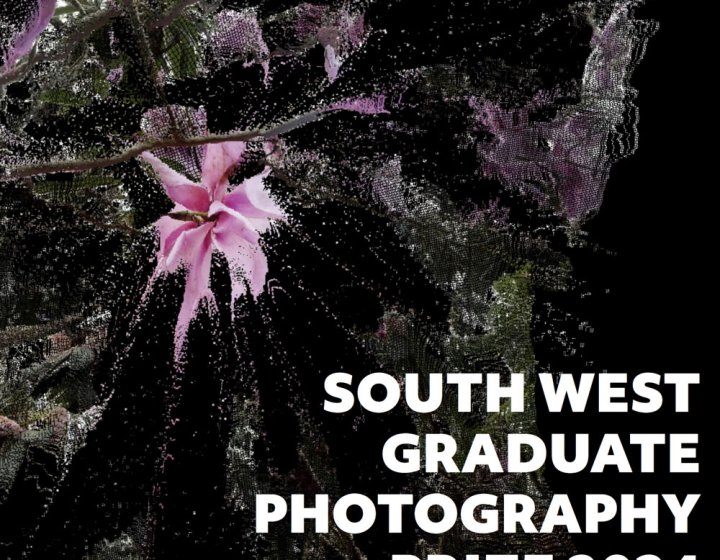
Falmouth alumni selected for the South West Graduate Photography Prize
08 November 2024
Four graduates from Falmouth's Institute of Photography have been selected to present their projec...
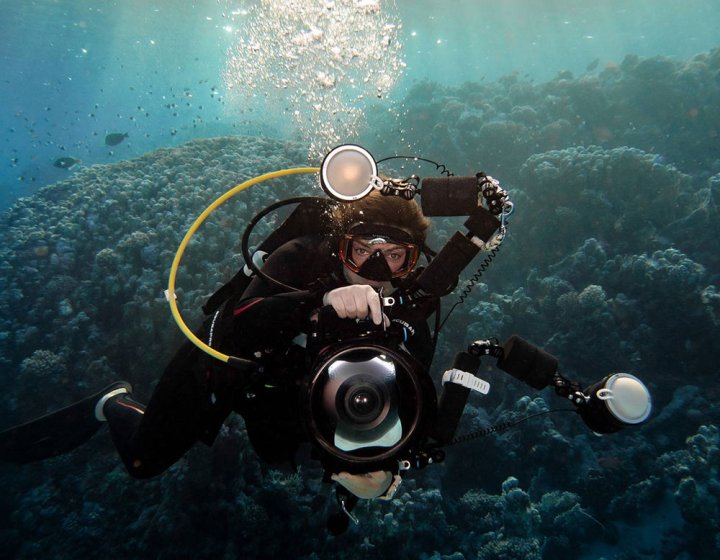
A year as Gina Goodman: Lecturer adds more awards to collection
24 October 2024
Marine & Natural History Photography BA lecturer Gina Goodman has followed up a stellar 2023 with a ...
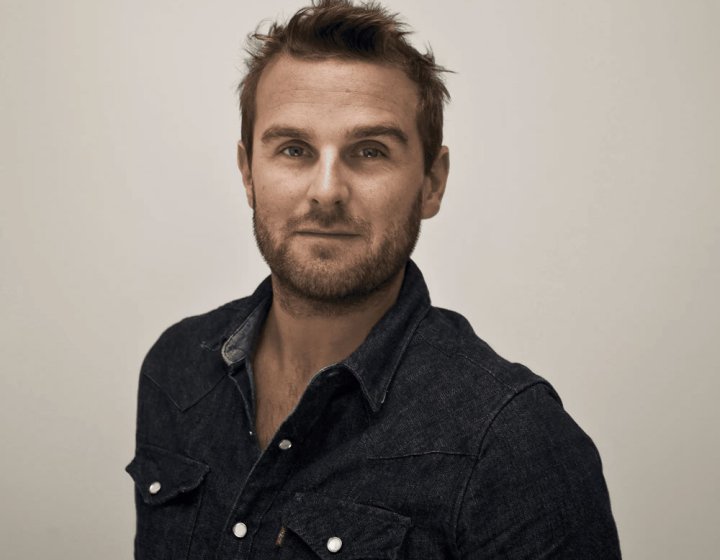
Lecturer’s photos on the Great Lego Spill featured in The New York Times
27 September 2024
Marine and Natural History Photography BA lecturer Guy Martin has had his images featured in one of ...
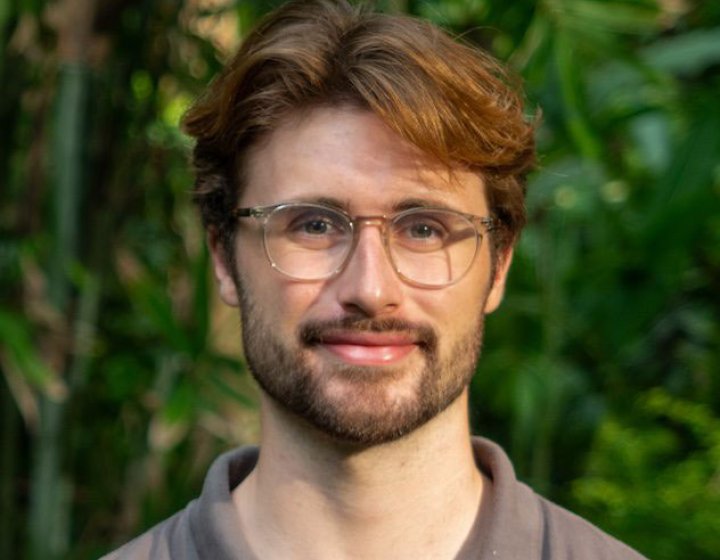
Graduate wins Young Ocean Photographer of the Year award
17 September 2024
Marine & Natural History Photography BA graduate Jacob Guy has won the Young Ocean Photographer of t...
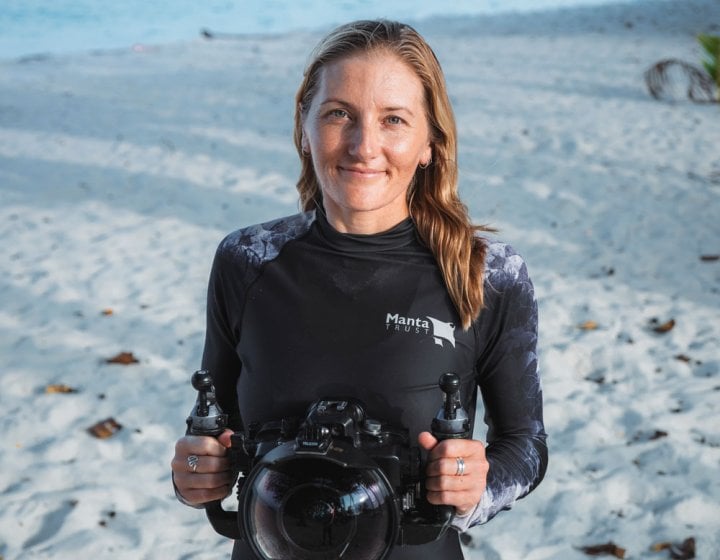
Graduate finalist in Ocean Photographer of the Year
03 September 2024
Marine and Natural History Photography (MNHP) BA alumna Jasmine Corbett has gained some of the highe...
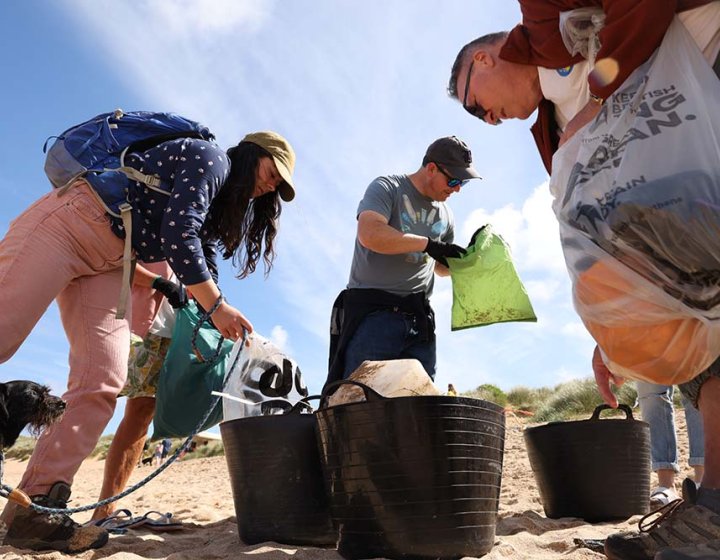
Photography graduates complete placements at Flexi-Hex
23 August 2024
Three graduates have completed micro-internships at the Cornish sustainable packaging company, Flexi...
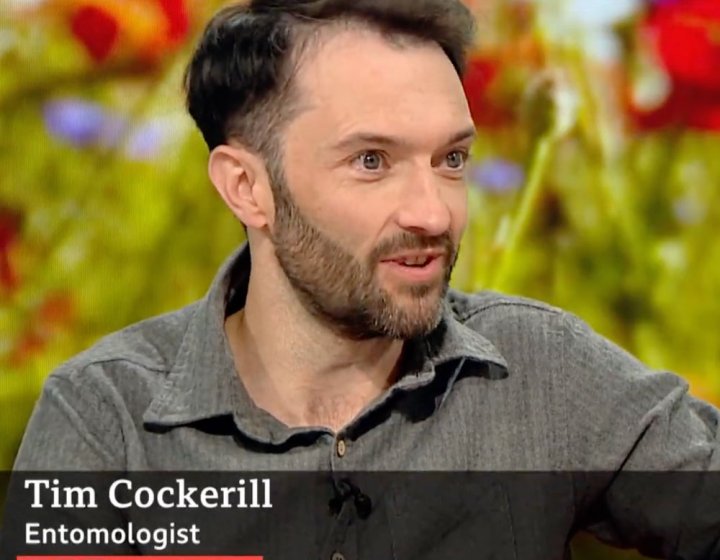
Tim Cockerill: How your garden can help insects thrive
16 August 2024
Marine & Natural History Photography BA lecturer Dr Tim Cockerill has appeared on BBC Breakfast to t...
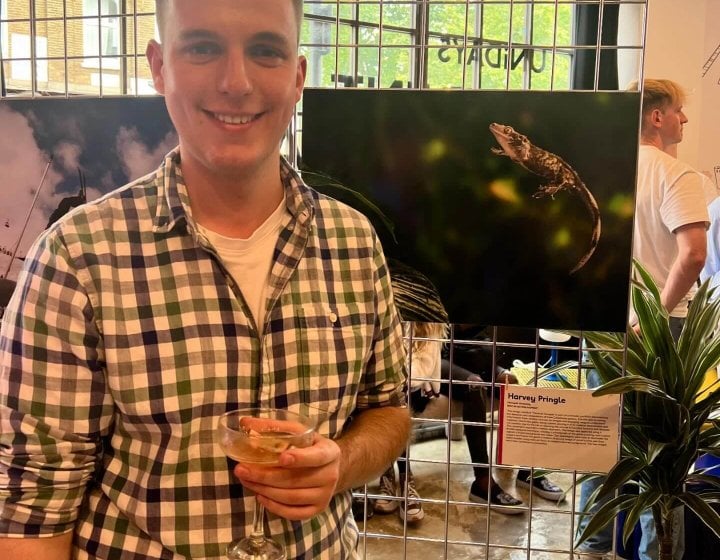
Marine & Natural History Photography student shortlisted for student photographer award
26 July 2024
Harvey Pringle – a student on Marine & Natural History Photography – has been shortlisted for th...
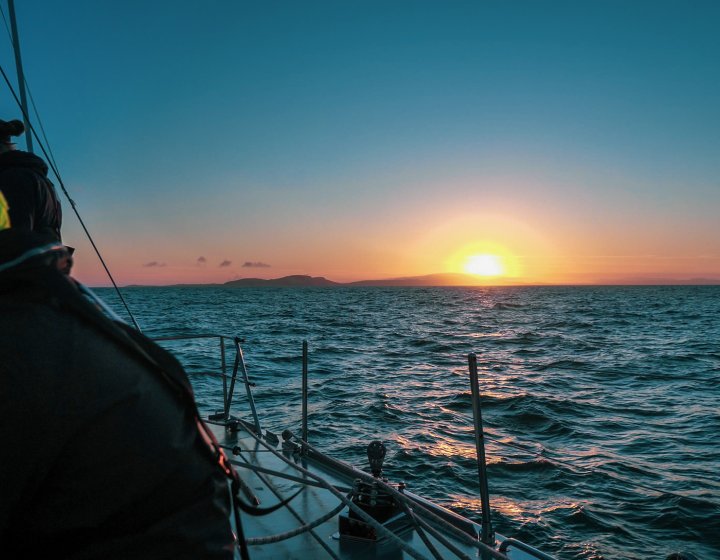
Falmouth student relishes adventure at sea with Tall Ships Youth Trust
28 May 2024
Marine & Natural History Photography BA(Hons) student Mim Hughes recently put aside the home comfort...

Falmouth student relishes adventure at sea with Tall Ships Youth Trust
28 May 2024
Marine & Natural History Photography BA(Hons) student Mim Hughes recently put aside the home comfort...
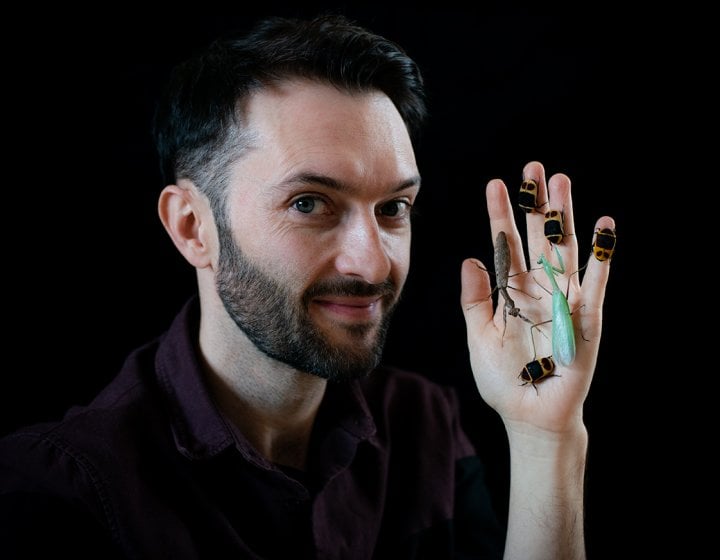
Meet science consultant, broadcaster and ‘insect wrangler’ Dr Tim Cockerill
22 April 2024
As well as a career as an ‘insect wrangler’ in TV and film, Tim is a senior lecturer for Falmout...
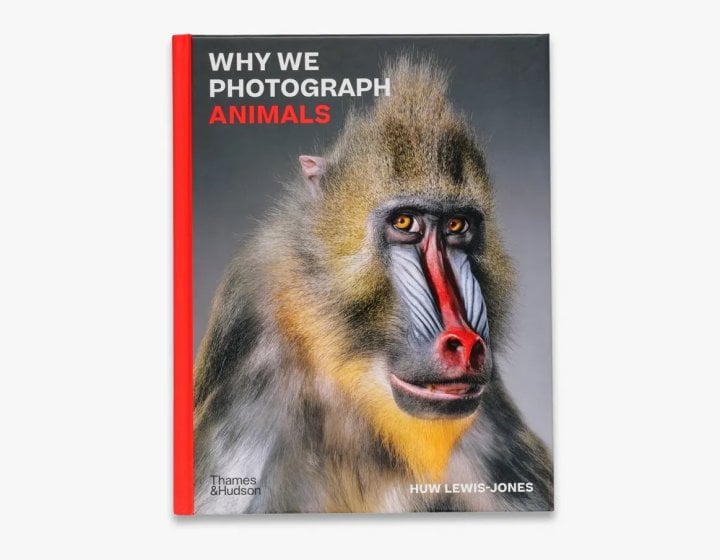
‘Why We Photograph Animals’: New book from Associate Professor Dr Huw Lewis-Jones
03 April 2024
'Why We Photograph Animals' is a visual overview of the history and future of animal photography.
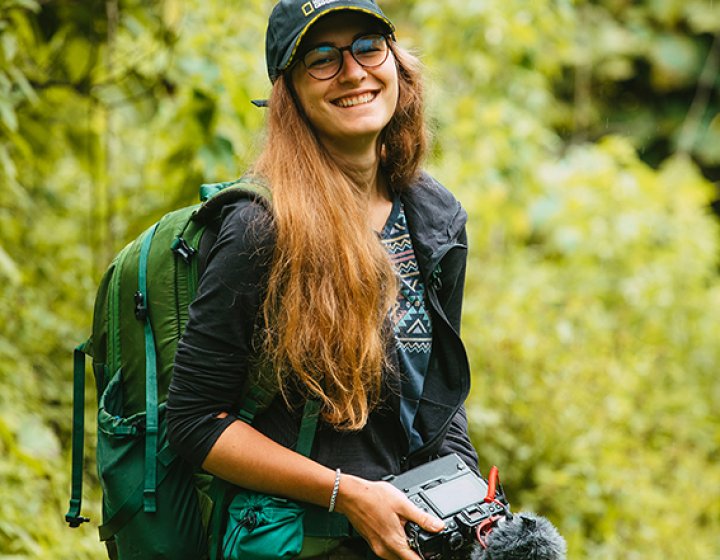
Meet the Falmouth graduate working on ‘the most ambitious portrait of life on earth ever attempted'
19 March 2024
We caught up with Marine & Natural History Photography BA graduate Hedvika to discuss working on loc...
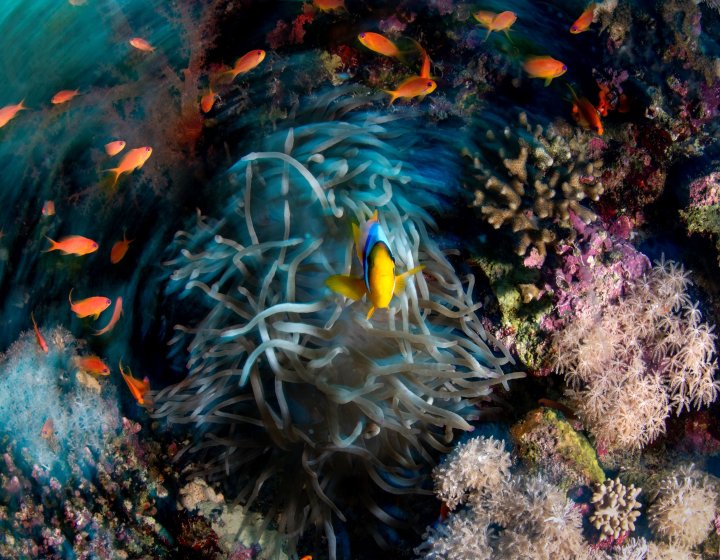
Imagination category winner, by Flora Tomlinson-Pilley
Students impress industry judges at underwater photography Red Sea exhibition
22 February 2024
Industry judges were impressed by students' underwater photography work, which was captured during t...
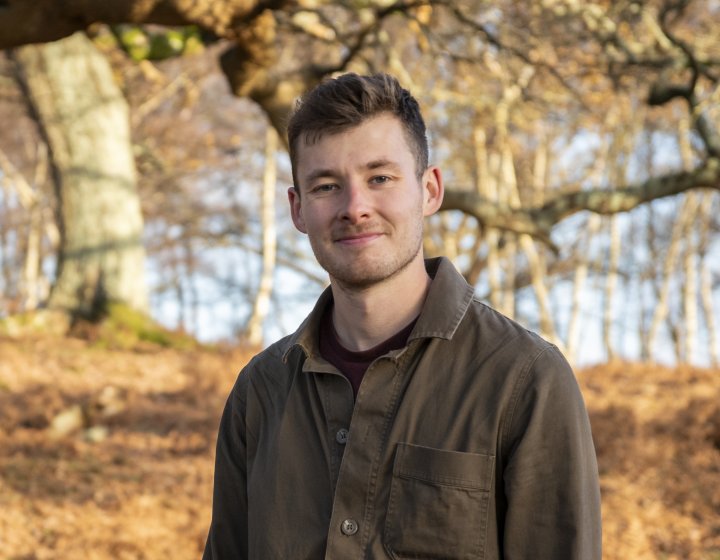
Marine & Natural History Photography graduate travels the world for the BBC's 'Big Little Journeys'
04 January 2024
Meet Marine & Natural History Photography BA(Hons) graduate Matt Roseveare – a wildlife photograph...
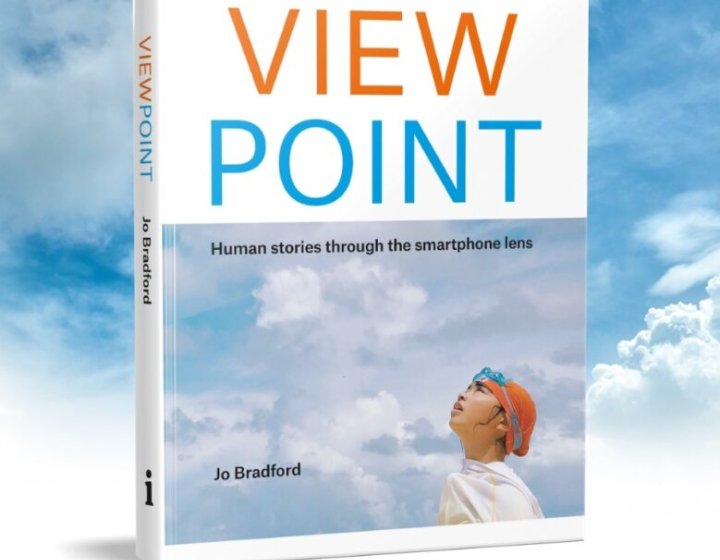
View Point by Jo Bradford
Phone photography making an impact in new book by Associate Lecturer
04 December 2023
Associate Lecturer on BA Marine & Natural History Photography Jo Bradford has had a new book publish...
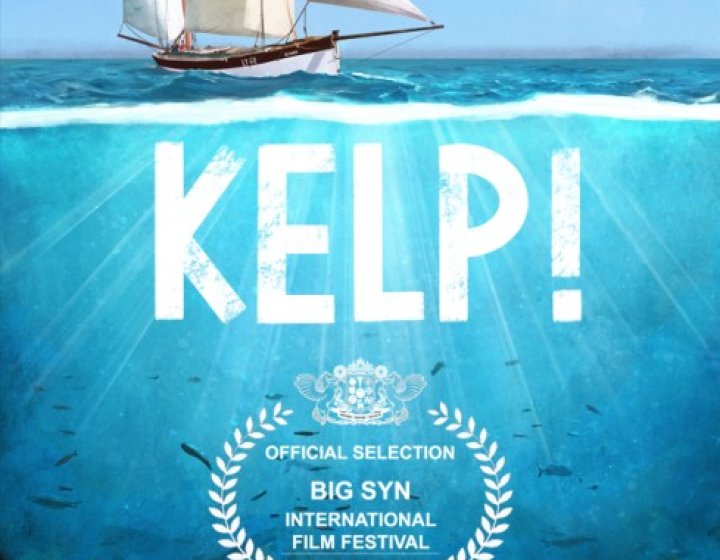
‘KELP!’ wins Best UK Short Documentary at Big Syn International Film Festival 2023
20 November 2023
KELP!, a film directed by Marine & Natural Photography BA(Hons) graduate Caylon La Mantia and senior...
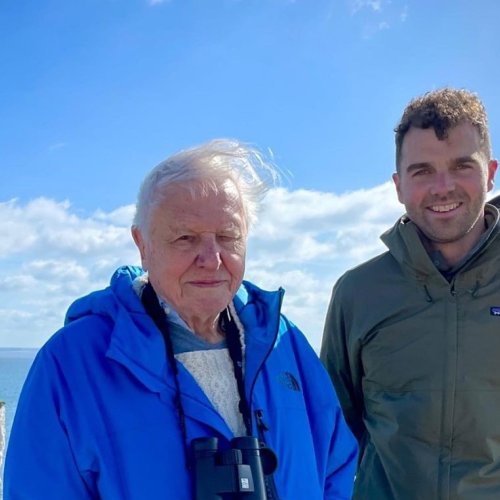
'Working with Sir David Attenborough in the field has been my biggest goal since I set out on this path.'
- Sam Stewart, Marine & Natural History Photography graduate
Read Sam's storyCareers
Our Marine & Natural History Photography graduates have worked as:
- Filming for BBC One Show
- Online content for BBC Spring Watch
- International Oil Spill Reaction Team
- PA to Mike Gunton (BBC NHU Creative Director)
- Founder of the Heart of Borneo Project
- Wildlife Cameraman for BBC, Netflix, Nat Geo, Disney
- Researcher BBC NHU
- Tech Assistant at Silverback Films
- Researcher at Nature Picture Library
- Marketing Campaign Executive at National Trust
- Founder of Armstrong Fortescue Expeditions
- Filming Sir David Attenborough

Image credit: Sam Stewart
A degree in photography opens doors to a broad range of industries such as fashion, advertising, graphic design, web design, architecture, film and publishing.
How to apply
Ready to apply for 2025?
You can apply for our undergraduate degrees via UCAS. You'll need our university UCAS code (F33) as well as your course code (which you'll find on your course page) for your application.
| Course route | UCAS code |
|---|---|
| Marine & Natural History Photography BA(Hons) three year degree | WF67 |
| Marine & Natural History Photography BA(Hons) with Integrated Foundation Year | FY20 |
| Marine & Natural History Photography BA(Hons) with professional placement | PY37 |
For starting your studies in 2025
UK applications: 29 January 2025 (for equal consideration)
Applications after the 29 January will be considered on a first-come, first-served as long as there are places available. Apply for this course now.
International fee payers
International fee payers can apply throughout the year. But we recommend applying as early as possible, to make time for visa and travel arrangements.
We consider all applications on their own individual merit and potential. We invite all applicants to an interview day or audition to give them the opportunity to demonstrate this along with what inspires and motivates them in their field. Applicants will also be able to show their portfolio or give a performance depending on the course. We welcome applications from all subject backgrounds, whether you’ve specialised in STEM, the arts or humanities.
Course routes & entry requirements
BA/BSc(Hons) three year degree: 104 – 120 UCAS Tariff points
BA/BSc(Hons) four year degree with professional placement: 104 – 120 UCAS Tariff points
BA/BSc(Hons) four year degree with Integrated Foundation Year: 80 – 120 UCAS Tariff points
Check the title of your course to see if it's a BA or BSc award. UCAS Tariff points will primarily be from Level 3 qualifications such as but not limited to A-levels, T Levels, a BTEC/UAL Extended Diploma or a Foundation Diploma.
For applicants whose first language is English we require you to have or be working towards GCSE English Language Grade 4 (C), or equivalent.
If English is not your first language you will need to meet the same standard which is equivalent to the IELTS Academic 6.0 overall score, with at least 5.5 in Reading, Writing, Speaking and Listening. We accept a range of in country equivalencies and approved tests.
If you need a student visa to study in the UK, you may need to take a recognised language test. You can read our English Language Requirements for more information.
Entry requirements for optional Underwater Photography module
- PADI Rescue diver or equivalent ex. BSAC Sport diver
- Medical clearance to dive.
Please note that without the above, you can still partake in water-based photography, but you won't be able to join dives.
For more information, click the button below:
Fees, costs & funding
Tuition fees
| Annual tuition fee | Student |
|---|---|
| £9,535 per year | Full-time UK |
| £17,950 per year | Full-time EU/international |
| £1,905 per professional placement year | Full-time UK and EU/international |
| £9,535 per Integrated Foundation Year | Full-time UK |
| £17,950 per Integrated Foundation Year | Full-time EU/international |
| Annual tuition fee | Student |
|---|---|
| £9,250 per year | Full-time UK |
| £17,950 per year | Full-time EU/international |
| £1,850 per professional placement year | Full-time UK and EU/international |
| £9,250 per Integrated Foundation Year | Full-time UK |
| £17,950 per Integrated Foundation Year | Full-time EU/international |
Tuition fees for September 2026 will be confirmed in summer 2025.
Tuition fees are set annually and are subject to review each year. The University may therefore raise tuition fees in the second or subsequent years of a course, in line with inflation and/or the maximum permitted by law or Government policy. Students will be notified of any changes as soon as possible.
The figures above don't include accommodation and living costs
Typical course costs
Recurring annual costs
- £100-£350 - Recurring annual costs (photographic materials, etc)
One-off costs for the duration of the course
If not already owned the following will be required:
-
£500-£1000 - A digital SLR camera of reasonable quality with manual over-ride to any automatic settings
-
£500- for a PC laptop or £1,200 for a MacBook
-
£300-£400 - Appropriate outdoor clothing (waterproofs, boots, backpack)
-
£100-£600 – Preparation of final portfolios or shows, etc)
Optional study trips
- £2000 - Optional study visits and placements for the course duration
Optional Diving Modules
- For the two optional diving modules, there will be an additional fee of approximately £350 per occurrence.
If you need to bring equipment or materials with you, these will be outlined in your Welcome Letter.
- £250 for materials
- A laptop/desktop computer
- Adobe Creative Suite
To engage in the digital learning activity, although you will be able to access IT suites on campus, you will benefit from a laptop to access the platforms and tools we use. Depending on your subject, you may need a specific type of computer. If you're unsure about what you might need, please contact our course advisors.
Funding
For information about funding available, please visit our student funding pages.
Ask a student
What better way to find out about life at Falmouth University than by asking our current students?
From course details and academic support, to the social scene and settling in, our students are ready and available to answer any questions you might have. Simply set up your account, send them a question and they'll get back to you within 24 hours.
Similar courses
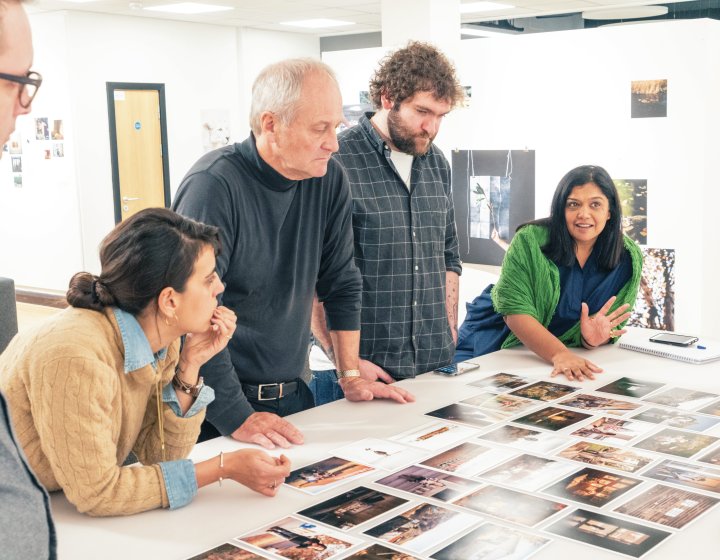
Photography MA
This Photography masters course supports you to re-imagine your work as a distinct, unique practitio...

Work by Hannah Mittelstaedt
Commercial Photography BA(Hons)
From creating photographs and films for high-end advertising and marketing campaigns to producing vi...

Photography BA(Hons)
On this dynamic course, you’ll explore the world of contemporary photography and develop a unique ...

Work by Alice Marple Horvat
Fashion Photography BA(Hons)
Develop your unique artistic voice and springboard into the industry as an innovative fashion photog...

Documentary & Editorial Photography BA(Hons)
On this fast-paced degree, you’ll learn to use the power of photography to communicate with a glob...
Open Days and events
From visiting campus to online application advice, get all the information you need about joining our creative community.
Find an event



















